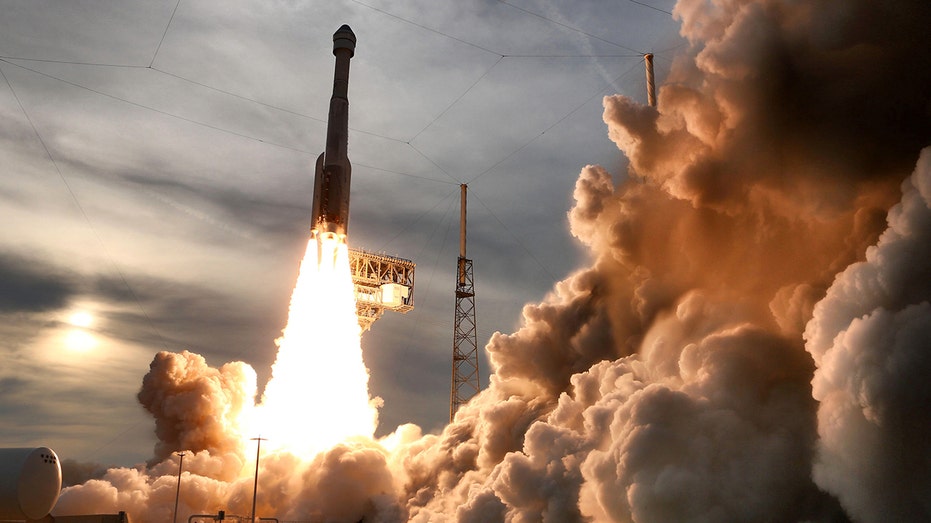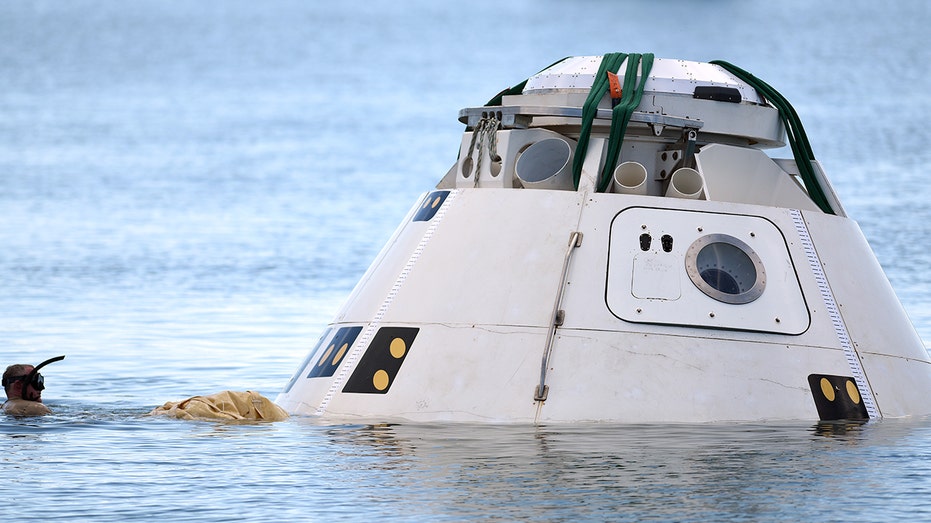Boeing's crewed spaceflight delayed till 2024, Starliner undergoes multiple safety reviews
The first crewed mission of Boeing's Starliner capsule has been delayed again
More delays and no astronauts are on the horizon for Boeing after safety issues were detected on its Starliner spacecraft.
Problems with parachute lines and flammable tape will keep a crewed flight test grounded until at least March 2024, a Boeing official said Monday. The official said removing the tape should not take more than a few weeks, but redesigned parachutes will not be ready until December.
If the parachutes pass their drop test at the end of the year, Boeing said Starliner should be ready to carry two NASA astronauts the International Space Station (ISS) as early as March. However, an exact date cannot be known because the launch is conditional on an Atlas V rocket being provided for the capsule by United Launch Alliance and an opening to dock at the space station.
| Ticker | Security | Last | Change | Change % |
|---|---|---|---|---|
| BA | THE BOEING CO. | 243.03 | +6.08 | +2.57% |
The delay may cause a financial headache for Boeing. The Starliner program incurred a $257 million loss during the second quarter because of a previously announced launch delay for its first crewed spaceflight.
BOEING'S STARLINER PROGRAM RACKS UP $1.4B IN LOSSES

The Boeing CST-100 Starliner launches at dusk from the United Launch Alliance complex 41 at Cape Canaveral Space Force Station, at 6:54 p.m. on May 19, 2022. (Joe Burbank/Orlando Sentinel/Tribune News Service via Getty Images / Getty Images)
The capsule was scheduled to have a test flight in July with two astronauts. However, the test flight, already behind schedule, was halted again when final reviews uncovered issues with the parachute lines and other problems that were present on last year’s test flight with no one on board. Officials said the issues should have been caught years ago.
The program so far has cost Boeing $1.4 billion.
Mark Nappi, manager for Boeing's Commercial Crew Program, said Monday that technicians are almost halfway done peeling off the flammable tape used to protect capsule wiring. Tape that cannot be removed from vulnerable spots will be covered with a protective coating.
BOEING STARLINER DOCKS WITH INTERNATIONAL SPACE STATION FOR FIRST TIME

A United Launch Alliance Atlas V rocket with Boeing's CST-100 Starliner spacecraft is rolled out of the Vertical Integration Facility, May 18, 2022 at Cape Canaveral Space Force Station in Florida. Boeing’s first Starliner flight with astronauts aboa (Joel Kowsky/NASA via AP, File / Getty Images)
The original guidelines for usage of the tape were confusing, according to company and NASA officials. Still, they later determined it could not be used in some areas because it was flammable.
The parachute issue is a bigger problem. The "soft links" on the parachute lines did not meet safety standards and appeared to have been overlooked by tests years ago. The parachutes are now being redesigned to fix the issue.
"There’s always the mystery of something else that can pop up," Nappi told reporters. But given the current situation, "we have a pretty good schedule laid out" to launch as early as March.
BOEING'S STARLINER RETURNS FROM SPACE STATION

Team members from the Department of Defense Human Space Flight Support Office Rescue Division conduct a search and rescue training exercise with the Boeing CST-100 Starliner training capsule at the Army Wharf on Cape Canaveral Air Force Station in Fl ( Paul Hennessy/NurPhoto via Getty Images / Getty Images)
NASA is paying Boeing and SpaceX to develop spacecraft that can shuttle astronauts to and from the ISS. SpaceX has had far more success with its Crew Dragon spacecraft, which flew its crew test flight in March 2020. Dragon will launch its seventh operational mission in roughly two weeks. Boeing has launched only two Starliner flights with no crew aboard.
GET FOX BUSINESS ON THE GO BY CLICKING HERE
NASA has insisted on hiring two competing crew launchers for its ISS project, which will end in 2030. The government's goal is to fly one Boeing and one SpaceX crew flight each year.
Fox News' Danielle Genovese and The Associated Press contributed to this report.





















